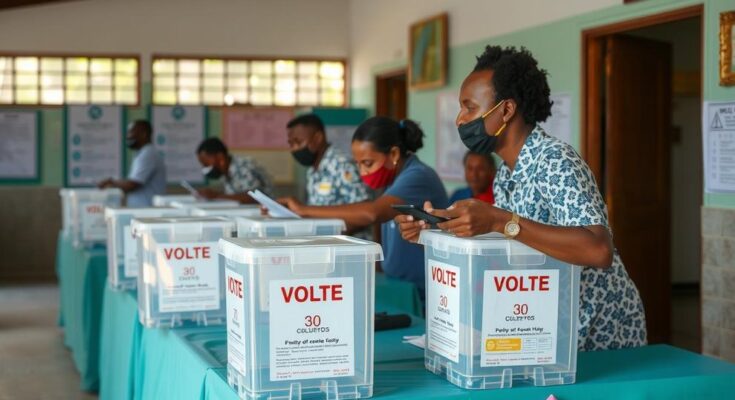Voters in Comoros are electing members of the 33-seat parliament amid concerns over alleged electoral irregularities from last year’s presidential election. Approximately 338,000 citizens are registered to vote. The elections occur against a backdrop of accusations of authoritarianism against President Azali Assoumani, who has been in power since 1999. Results are anticipated by Friday.
Voters in Comoros are participating in elections for the archipelago’s 33-seat parliament, marking the third parliamentary election since President Azali Assoumani’s coup in 1999. Approximately 338,000 citizens are registered to cast their votes, with polling stations opening early on Sunday. This election follows allegations of irregularities during Assoumani’s re-election as president last year, which the ruling party has denied. Opposition groups express concerns over authoritarian practices, including the recent empowerment of Assoumani’s son, Nour El-Fath, to coordinate government affairs.
Comoros, an island nation located in the Indian Ocean, has faced significant political instability since gaining independence in 1975. Azali Assoumani has been a central figure in the nation’s politics, having seized power through a coup and subsequently winning multiple elections amid accusations of electoral misconduct. The current parliamentary election is crucial for shaping the governance of Comoros, especially in light of growing tensions between the ruling party and opposition factions critical of Assoumani’s leadership style and succession plans.
The elections in Comoros represent a critical juncture for the nation as it grapples with political challenges and the implications of President Assoumani’s extended tenure. The contrasting approaches between boycotting parties and those seeking to expose the ruling regime underline the complex political dynamic. Results from the elections are expected by Friday, highlighting the ongoing significance of democratic processes in the archipelago.
Original Source: www.canberratimes.com.au




